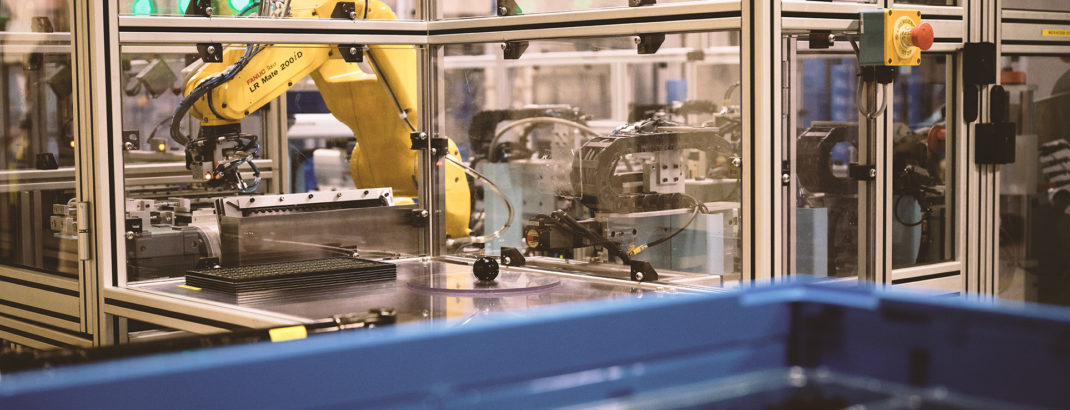Lights out manufacturing is nothing new – but the Covid-19 crisis means it’s more relevant today than it’s ever been, writes Richard Minifie, Senior Additive Manufacturing Engineer at Ricoh 3D.
Lights out manufacturing – or ‘dark factory’ as it’s sometimes called – refers to factories which can operate with little human intervention. They instead operate using automated robots or machines and therefore can, as the name suggests, run with the lights out and maintain production throughout the night.
There are obvious advantages, including increased productivity, lower costs and fewer errors.
And, of course, the fact people cannot currently work in close proximity due to the Covid-19 crisis makes dark factories vital to sustaining UK industry.
It’s not just a futuristic fantasy – spearheaded in Japan and the US, there are factories where largescale operations are running with barely any humans in sight.
One industry which has really harnessed the power of lights out manufacturing is 3D printing and rapid protoyping. Here at Ricoh 3D, we have been running production lines with a minimal headcount on site since 2015.
This has meant during the coronavirus pandemic we have been able to operate almost business as usual, whereas operations using more traditional technologies requiring greater human input have ground to a halt.
For us, it’s not unusual to have one or two highly-skilled operators working multiple machines. There is no need for them to come within two metres of each other.
All our pre-production processes are done off-site such as preparation of build files which, once complete, are sent directly to the machine.
We also use cutting edge monitoring software which means engineers can observe the machine build from the comfort of their homes. The status of the system is always clear so if there is a problem, we can arrange to come on-site and quickly amend the settings.
Additive manufacturing really comes into its own in moments of crisis, with demand for short term localised production to cover supply chain gaps. Despite the workplace and distancing restrictions, our small team was able to very quickly create and assemble an innovative face shield prototype in less than 24 hours, work with NHS experts to tweak the design and then prepare for mass production using injection moulding – with 40,000 face shields now coming off the line every week, it really is testimony to the power of 3D printing and British manufacturing.
